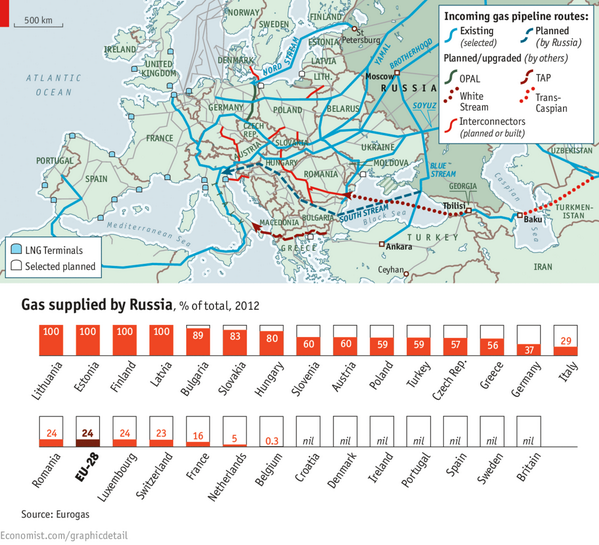BY BRENDA SHAFFER



Brenda Shaffer is a visiting researcher at Georgetown University’s Center for Russian, Eurasian and East European Studies.
Prof.Dr Brenda Shaffer
President Obama’s meeting this month with the Group of Seven leaders focused on European energy policies in light of the crisis in Ukraine. As Western leaders seek the right response, they would do well to keep in mind that Europe’s dependence on Russian energy did not develop overnight. It was, instead, the result of meticulous planning and execution over decades. It cannot be countered without equally disciplined policies led by government institutions.
To reach its goal of energy dominance in Europe, Russia has left no stone unturned, and those who got in the way have sometimes paid a price. In 2009, when Turkmenistan entered into discussions with the European Union about building a pipeline to Europe across the Caspian Sea, a gas valve was closed on the Russian side of a shared pipeline. This caused an explosion that crippled Turkmenistan’s gas export infrastructure for some time.
Moscow has taken steps to block the entrance of Iran into European gas markets; in 2006, the Russian company Gazprom bought a pipeline from Iran to Armenia and limited its size to ensure that it could be not be used to carry Iranian gas into Europe.
Where Moscow has not succeeded in staving off new suppliers altogether, it has found ways to undermine projects. Moscow is clearly unsettled by the prospect of the Southern Gas Corridor pipeline moving gas from Azerbaijan to southern Europe. This pipeline could easily accommodate spurs into the Balkans and Eastern Europe, as well as carry gas from sources such as Iraq and Israel, so Russia has sponsored bogus environmental challenges to the line in Bulgaria and elsewhere. Russian companies are also attempting to buy parts of the transmission systems along the route. And Moscow has bought into rival projects directly, via Russian companies, or indirectly, through closely allied companies in Europe, to hold on to its influence over the supply of gas. Gazprom and a number of European companies also use informal alliances to circumvent E.U. legislation meant to unbundle production, transmission and distribution.

And when importing states fail to pay their bills, Gazprom simply takes over their domestic gas transmission systems and other energy infrastructure as payment, further deepening Moscow’s hold over its neighbors. In January, Armenia lost its last stake in its local gas company this way.
All of this raises the question: How should Europe respond? Its answer, unfortunately, has been to push “liberalization” of its natural gas and electricity markets — including privatization, the unbundling of energy companies and encouragement of shorter supply contracts. As the challenges have grown, Brussels has increasingly pulled the European Union and its institutions out of the business of ensuring energy security and delegated the job to the invisible hand of the market.
But the marketplace alone will not be enough to counter a relentless Russia. National and E.U. institutions must take a more active, strategic role. Here’s what Europe should do instead:
Eastern European states must embrace policies designed to boost their own long-term security and independence, and Washington and Brussels should clarify to NATO and E.U. members that belonging to these organizations entails protection of their energy security from external control.
Ukraine and other states bordering Russia must pay their gas bills — and not by signing over their national infrastructure.
European gas-trade hubs that will set prices for many of the new contracts present a tempting opportunity for manipulation by Russia and others, and their operation must be carefully monitored for this danger. If such market manipulation occurs, regulators need to act forcefully to counter it.
Finally, astute, professional government analysis should identify and disrupt the sophisticated organizations and companies that Moscow works through in Europe to foil rival gas suppliers.

No comments:
Post a Comment